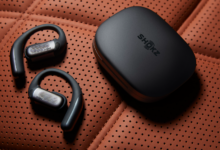How Smart Is the AI in New Smartphones?

Smartphones have developed well beyond their original use as communication tools. The incorporation of artificial intelligence (AI) into current smartphones is one of the most innovative innovations, dramatically improving user experiences and device performance. AI has become an essential component of smartphone operation, from better photos to longer battery life. As AI technology advances, it reshapes how smartphones work, making them smarter and more intuitive. This blog discusses the fundamental AI capabilities in current smartphones and how AI improves performance, eventually changing the way we use these devices on a daily basis.
What Are the Key AI Features in Modern Smartphones?
AI-Powered Photography
AI-powered photography on smartphones improves your photos with no effort. Smartphones use machine learning algorithms to automatically alter settings such as exposure, contrast, and color to provide the best possible image quality. AI can also identify and adjust for various scenarios, such as landscapes, portraits, and low-light environments. For example, in low-light circumstances, AI increases brightness while decreasing noise, resulting in clearer and sharper photographs. Advanced AI also supports features such as portrait mode, which blurs the backdrop and creates a depth-of-field effect, providing a professional touch to ordinary shooting.

Voice Assistants and Natural Language Processing (NLP)
Artificial intelligence-powered voice assistants employ Natural Language Processing (NLP) to interpret and respond to spoken commands. This technology enables smartphones to understand not just what you say, but also the context and intent behind it. Voice assistants increase their accuracy and personalization over time as they learn from prior conversations. AI-powered voice assistants make things like making reminders, sending messages, and surfing the web faster and more convenient. Furthermore, these assistants, enhanced by voice generator AI, are always evolving to handle increasingly complicated requests and recognize regional accents, hence increasing their usefulness and efficacy.
Battery Optimization Using AI
AI has transformed battery optimization in smartphones by automatically regulating power use. Smartphones utilize machine learning algorithms to evaluate user activity, including which applications are used most frequently and at what times. AI changes power settings to conserve battery life, such as dimming the screen or shutting off unnecessary apps in the background. By anticipating when and how the gadget will be used, AI guarantees that energy is used efficiently, eliminating waste. This dynamic, real-time battery optimization allows users to get more out of their smartphones, ensuring they last throughout the day with less frequent charging, as seen in devices like the HONOR 400 Lite.
How Does AI Enhance Smartphone Performance?
Machine Learning for Speed and Efficiency
Machine learning plays an important role in increasing smartphone speed and efficiency. AI improves different processes by continually evaluating user behavior and system performance to ensure the phone functions smoothly. For example, machine learning algorithms estimate which applications you will use next and pre-load them for speedier access. AI may also assist with system maintenance by automatically finding and fixing performance issues, such as cleaning the cache or freeing up storage space. This proactive management results in quicker app launches, smoother multitasking, and a faster, more responsive device, which substantially improves the user experience.
See also: Technological Advances in Patient Pre-Registration: What to Expect
Personalized User Experience Through AI
AI personalizes your smartphone experience by adjusting to your habits and interests. The gadget learns your usage habits, including which applications you use the most, your favorite settings, and when you interact with your phone. This information enables the smartphone to alter notifications, provide appropriate content, and optimize settings such as brightness and volume. Over time, AI anticipates your requirements and provides a more personalized experience. For example, the phone may automatically switch to “Do Not Disturb” mode during meetings or recommend music based on your listening history, resulting in a smooth and personalized user experience.
Real-Time AI for Gaming and Graphics
Real-time artificial intelligence substantially improves smartphone gaming and graphics performance. AI improves graphics rendering, ensuring that games run smoothly and look great even at high settings. It can alter graphics quality in real time based on your phone’s processing capabilities, guaranteeing a lag-free experience. Furthermore, AI-driven features such as motion smoothing and dynamic resolution scaling create an engaging gaming experience with higher frame rates and more realistic images. For mobile gamers, real-time AI enhancements maximize performance, allowing for seamless gameplay and colorful visuals, particularly in visually demanding games.
Conclusion
Artificial intelligence has made smartphones into powerful, intuitive machines that respond to our requirements in real time. AI plays an important role in offering enhanced user experiences, from increasing photos and battery life to enhancing general performance and gameplay. As AI technology advances, the future of smartphones becomes even more exciting. With better and more efficient AI capabilities, these gadgets will become increasingly interwoven into our daily lives, providing unprecedented ease, customisation, and performance. The continuous breakthroughs in AI will surely affect the future of smartphone technology.







